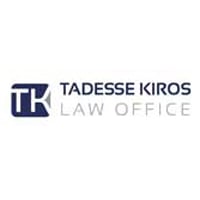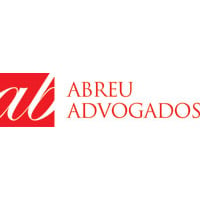

Partner; co-head of international arbitration practice; head of public international law practice; co-leader of energy practice | Shearman & Sterling






Yas Banifatemi
Partner; co-head of international arbitration practice; head of public international law practice; co-leader of energy practice | Shearman & Sterling
Number of years practice: 20+
Principal practice areas: International arbitration, public international law
Languages spoken: French, English, Farsi
What is the geographical focus of your practice in Africa?
Pan-African.
Please describe the most important matters you have worked on in the African market in the last two years, including your role and the significance of the matter (if any) to the development of business and law.
Over the past two years, I have acted as counsel in over 15 international arbitrations related to Africa. I have also advised African states and state-owned companies on public international law issues. I also act as arbitrator in investment treaty proceedings brought against African states.
Representative highlights which have marked the last two years notably include acting as lead counsel along with Emmanuel Gaillard in securing the dismissal, on behalf of the People’s Democratic Republic of Algeria, of a US$4bn claim brought against the Algerian Republic by Orascom TMT Investments, a company owned by Egyptian billionaire Naguib Sawiris. The arbitral tribunal held that the dispute was, in essence, identical to one brought in another arbitration – in which I also acted as lead counsel on behalf of the Algerian Republic – and that the pursuit of multiple arbitrations over the same dispute amounted to an abuse of rights. This is a landmark decision in abuse of process, but also because an increasing number of states have been faced with investors bringing multiple proceedings in relation to the same facts.
I was also lead counsel – along with Emmanuel Gaillard – in representing Angolan national energy company Sonangol in an ICC arbitration brought against it by a local subsidiary of US company Cobalt International Energy. The US$2.2bn claim related to concession rights in two deep-water oil blocks off the coast of Angola. A settlement was achieved in December 2017 and the arbitration was terminated in July 2018. This was one of the largest energy disputes in sub-Saharan Africa.
Additionally I was also lead counsel, along with Emmanuel Gaillard in representing Algerian national energy company Sonatrach in an ICC arbitration brought against it by Italian company Saipem and its local subsidiary.
In addition to my work as counsel, I was appointed arbitrator by the Republic of The Gambia in three ICSID cases brought against it by investors, which were eventually consolidated in one case. The dispute relates to licenses for exploration of off-shore oil blocks. I also chair the tribunal in the ICSID arbitration brought by Michael Dagher
against the Republic of the Sudan.
In the area of public international law, I regularly advise African and other energy companies on all issues that arise in the management of natural resources.
What differentiates your practice from that of other private practice lawyers?
Contrary to many of my peers, I have a long history of representing and advising African and other clients. My first clients ever when I started practicing law 21 years ago were African clients and about 50% of my workload relates to Africa.
I believe that the fact that I practice both in the areas of international arbitration and public international law has been directly useful to states and state-owned entities. I advise them on the full range of issues associated with the management of their oil and gas resources, such as production sharing agreements, price review, stabilisation clauses, taxation and many others. My main areas of focus are investment treaty law and energy.
I am proud of the work that I have done in Africa and pleased to be able to contribute to its economic growth through my work. I am also deeply committed to fostering legal education in Africa. I established and run an international traineeship program in our office in Paris, in which we have hosted a significant number of African trainees. I am also involved in the work of Africa International Legal Awareness (AILA), an organisation created to promote legal expertise of Africans in international law. I sit on AILA’s advisory board.
Why has Africa been a particularly strong focus for you?
Many firms rushed to Africa a few years back, but Shearman & Sterling has been active in Africa for over 50 years. We have a long-lasting
and strong relationship with many of our African clients. With the increase in foreign investments over the past decade, this was accompanied by an increase in disputes submitted to alternative dispute resolution, including international arbitration. This has not only grown the market for international arbitration, but has also given rise to developments in the field of arbitration in Africa.
What changes have you seen in the appetite for Africa-based ventures and investments over the last five years?
A trend that has emerged in recent years in this respect is the increase in Africa focused global venture-capital firms and also homegrown venture capital. As this market continues to mature, it is fair to assume that it will contribute to bridging Africa’s investment funding gap.
Are there any aspects of the African legal market that you would like to see change?
Although it is always ill-advised to treat Africa as a single block, a welcome development would be the relaxing of local laws and regulations to allow foreign firms greater freedom to operate on the continent, either through local presence or meaningful partnerships with local firms. It is expected that this would not only provide opportunities for international firms but also assist in unlocking potential in the legal industry in Africa.
What megatrends do you think will shape the African market over the coming five years? How (if at all) will these trends affect your practice?
It is expected that, over that period, the liberalisation of various sectors including financial services, energy and telecom, the private sector’s contribution to GDPs across the continent and FDI inflows will continue to increase. By definition, these developments are sure to provide the legal profession with greater opportunities.
With the increased education and training of African-born lawyers, I also look forward to increasingly seeing truly African experts and specialists rising in the market.